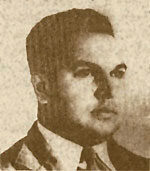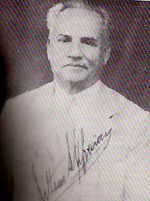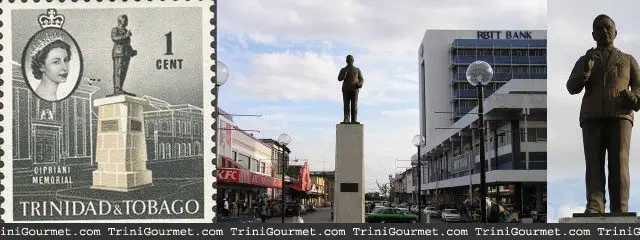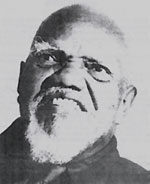Labour Day Menu & History
“June 19, Sir, is a day which, in the minds of the workers, marks a landmark in the history of the working class movement.” – Adrian Cola Rienzi
June 19 is Labour Day in Trinidad and Tobago, a public holiday
Labour Day marks the labour uprising on 19th June 1937 which is generally recognised as the start of the modern trade union movement in Trinidad and Tobago.
From Gov.tt:
Labour Day in Trinidad and Tobago is held annually on June 19th, the anniversary of the day of protest in 1937. This effectively led to the recognition of the modern trade union movement.
Although some Trinbagonians actively take part in small local celebrations, many simply take the day as an extra day for recreational and leisure activities.
In keeping with the no-frills activist spirit of this day I have put together a simple yet flavourful menu.
LABOUR DAY MENU
• Wholewheat Bake (recipe)
• Grated Carrot and Raisin Salad (recipe)
• Pan Fried Snapper with Tomato Salsa (recipe)
• Sarina’s Spicy Ochro/Okra Melee (recipe)
• Coconut Rock Buns (recipe)
KEY PLAYERS IN THE FORMATION OF THE LOCAL LABOUR MOVEMENT
 ADRIAN COLA RIENZI ADRIAN COLA RIENZI
From Wikipedia: The Rienzi-Kirton Highway in San Fernando is named partly in honour of him and the Rienzi Complex in Couva also bears his name. • EAST INDIAN – WEST INDIAN: The Public Career of Adrian Cola Rienzi by Dr. Brinsley Samaroo |
|
Trinidad and Tobago’s national labour hero wanted to see what he termed “a better and a brighter day.” Butler was born in 1895 in Grenada. He was a tremendous fighter for human rights and he wanted to educate the workers about their rights. On 19th June 1937, Butler was involved in a major riot at Fyzabad Junction. His dream was to see an independent Trinidad and Tobago, and that came through in 1962. He is remembered for his struggles and was honoured on Independence Day 1976 with the Trinity Cross. Since 1973 Labour Day has been celebrated on 19th June. Butler died at age 80. He is remembered today as a charismatic leader of genuine working class background. He is honoured with a statue in Fyzabad and awarded Trinidad’s highest honour, the Trinity Cross, in 1970. In 1988 the Princess Margaret Highway was renamed the Uriah “Buzz” Butler Highway. • Tubal Uriah “Buzz” Butler on Wikipedia |
 CAPTAIN ARTHUR ANDREW CIPRIANI CAPTAIN ARTHUR ANDREW CIPRIANI
From National Heroes (site now defunct): This marked Cipriani’s entry into politics. Realizing that the fate of the workers depended on who comprised the government, he began his lengthy struggle for adult franchise. Between 1919 and 1937, the TWA was the main vehicle for leftwing ideology in the Caribbean; under Cipriani’s leadership it metamorphosed into the Trinidad Labour Party (TLP), with close links to the British Labour Party. Cipriani’s battle for the vote was partly responsible for the British government’s decision in 1921 to investigate the question of representative government in the colony; the head of the Royal Commission of Enquiry, Major E.F.L. Wood, recommended partial franchise. In Trinidad’s first national election, on February 07, 1925, Cipriani won the Port of Spain seat on the Legislative Council, a position which he retained until 1945. Upholding the interests of the “unwashed and unsoaped barefoot man” against those of big business and government, Cipriani fought tirelessly for workman’s compensation, old age pensions, an eight-hour day, minimum wage laws and compulsory education. He defended legislation to protect trade unions and in 1932 was successful in getting a Trade Union Ordnance enacted by the British government. Cipriani was also active at the municipal level. He was a member of the Port of Spain City Council continuously from 1926-1941, serving as mayor a record eight times. In the City Council, he fought for state ownership of the electricity and telephone companies, and for the election of women to the City Council. Cipriani did not live quite long enough to see his dream of representative government become a reality; he died in 1945, one year before adult suffrage was instituted.  Listen to “Captain Cipriani” , recorded by Lord Beginner (Egbert Moore) in 1935[soundcloud url=”http://api.soundcloud.com/tracks/15922739″]
|
A memorial to Captain Cipriani lies in the heart of the capital’s Independence Square (as shown below) and is dubbed the Cipriani Roundabout. His name is also carried on through the Cipriani Labour College. (There is also a Cipriani Boulevard but I’m not sure if this was named after this Cipriani or another 🙂 )

This post was originally published June 19, 2007. It has been updated three times since then


 TUBAL URIAH “BUZZ” BUTLER
TUBAL URIAH “BUZZ” BUTLER